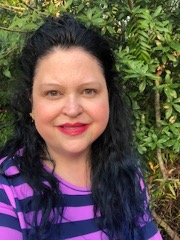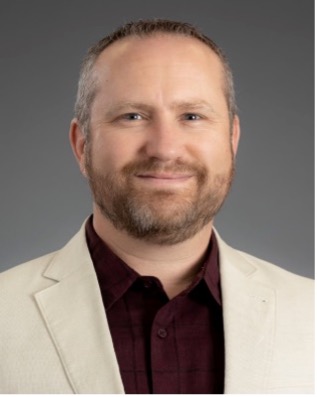We Asked, You Answered – 2024 HR Florida Voice of the Customer Update
By Shellie Halstead, Ed.D., SHRM-SCP and Professor Abram Walton, Ph.D.
Continuing efforts that began in 2019, the HR Florida Analytics and Innovation Research Committee annually surveys our entire constituent base to find out what research topics and services are most valuable to you.
In 2023, the top three research topics were:
- How employees are measured and given feedback
- How the next generation of leaders is selected and developed
- How the enterprise prepares for the future workforce
This was a slight change from 2022, with “How candidates are identified and selected” dropping out of the number one spot and “Preparing for the future workforce” taking a place in the top three.
In 2023, there were two clear winners for more support: “Culture” and “Employee Engagement”, with “Employee Feedback” and “Succession Planning” tied for third place.
We also found that if we gave you a magic wand to fix just one thing, the most common themes were around finding candidates, retaining employees, and employee engagement.
So, what did we do with those results?
Conference Sessions
First, we continued our presence at the annual conference, with a focus on offering sessions that close the academic-practitioner gap and align with the needs identified through our voice of the customer research. At the 2024 HR Florida Conference we had 4 sessions with the specific goal of presenting academic research in a way that is both meaningful to and useable by the practitioner. These sessions, summarized below, addressed critical topics that align with your interests and professional development needs.
Session 1: “When Culture Becomes Entrenched: The New Science on Unsticking Your Teams”
In the fast-paced world of AI-driven innovation, corporate mergers, and evolving workforce attitudes, maintaining a healthy organizational culture is crucial. However, cultural entrenchment can cause resistance to change and hinder progress. This session explored the science behind why teams get stuck and provided strategies and actionable steps to overcome stagnation. By addressing these challenges, organizations can reduce negative behaviors, improve team dynamics, and enhance overall outcomes, ultimately empowering teams to cultivate a healthy culture and unlock their full potential.
Session 2: “Business Myths Debunked: How Science Refutes the Most Common and Costly Compensation Fallacies”
This session tackled pervasive myths around compensation, questioning whether more money truly motivates better performance and whether individual incentives are the key to driving results. By examining empirical evidence, participants gained an updated perspective on the role of compensation in attracting, retaining, and incentivizing talent. The latest research findings were presented to ensure that compensation strategies are grounded in fact, not fiction.
Session 3: “The Science of Motivational Theory and Intentional Leadership”
Exploring the dynamics of intrinsic and extrinsic motivation, this session delved into the latest research on motivational theory. Participants learned how to apply an “intentional leadership” approach that aligns organizational systems and leadership behaviors to unlock discretionary effort. This session encouraged attendees to rethink how they inspire and enable their teams to bring their best selves to work.
Session 4: “AI & HR: 5 Uses for Today and 5 Ways to Prepare for Superteams of Tomorrow”
In this session, we examined the current and future impact of AI on HR practices. Participants explored five AI tools that can be leveraged today and five strategies to prepare for the HR superteams of tomorrow. This session highlighted the potential of AI to revolutionize HR functions, enhance collaboration, improve decision-making, and create superteams that outperform human-only teams.
Publications
Second, we curated and published articles for the HR Florida Newswire that aligned with the discussions and insights from the conference. Summarized below, the full articles are all available in the Newswire archive: https://hrfloridanewswire.org/ The takeaways highlight the evolving role of HR in managing hybrid work, integrating AI, and fostering a constructive employee voice to drive organizational success.
May 2024 – Employee Voice: Constructive or Destructive? The HR Practitioner’s Guide to Positive Outcomes
- Employee Voice: The concept of employee voice refers to how employees express their opinions and feedback within an organization. A positive voice can lead to constructive outcomes, while a negative or destructive voice can harm the organization.
- Constructive Voice Systems: HR should create systems that encourage constructive employee voice through effective communication, participation, facilitation, and negotiation.
- Managing Destructive Voice: HR must recognize when employee voice turns destructive, such as through sabotage or resistance to change, and work to redirect it positively.
- Building Loyalty Through Voice: The belief that employee contributions can lead to positive change is crucial for maintaining loyalty. HR must build this belief into the psychological contract between the company and employees.
- Best Practices for HR: To foster a constructive voice, HR should ensure transparent communication, provide multiple avenues for participation, facilitate employee growth and well-being, and negotiate fair compensation tied to positive contributions.
June 2024 – The AI Jolt: Turning Teams into Super-Teams
- AI as a Partner, Not a Threat: AI is positioned not as a job-stealing threat but as a tool that augments human capabilities, creating opportunities for new roles and enhancing collaboration.
- The Shift to AI-Driven Work: AI is causing a significant shift in work processes, similar to past technological revolutions but with more profound implications. Organizations must adapt quickly to harness AI’s potential.
- Superteams and AI: AI enables the creation of “Superteams,” where AI tools work alongside human teams to surpass the performance levels of human-only teams. HR must focus on building a workforce that is ready to collaborate with AI.
- Long-Term Performance and Creativity: AI can help maintain high performance over time by taking on repetitive tasks and allowing humans to focus on more complex, creative work.
- HR’s Role in AI Integration: HR professionals must lead the way in integrating AI into the workforce, creating teams that can effectively collaborate with AI, and ensuring that the organization stays competitive.
July 2024 – Hybrid Harmony: HR’s Role in Shaping the Future
- Hybrid Work Models: Hybrid work has become a standard in many organizations, with 74% of U.S. firms either using or planning to adopt it. Companies like AT&T and General Motors are mandating partial returns to the office to preserve company culture and enhance in-person collaboration.
- Flexibility is Key: The success of hybrid work relies on flexibility, which is crucial for employee satisfaction and productivity. HR must design policies that accommodate diverse work styles and personal circumstances.
- Effective Communication: Robust communication tools and protocols are essential to keep both remote and on-site employees engaged and informed. This helps in building relationships and ensuring inclusivity in hybrid teams.
- Mental Health and Quality of Work Life: Hybrid models can blur the boundaries between work and personal life, leading to stress and burnout. HR should prioritize initiatives that support mental health and work-life balance.
- Navigating Hybrid Work: Hybrid work is here to stay, and HR must be agile in addressing the evolving needs of the workforce. Emphasizing flexibility, communication, and mental health is critical for long-term success.
Next Steps
In conjunction with this article we are launching our annual voice of the customer survey and would like to invite you to participate. HR Florida is continuing to seek to provide evidence-based insights, recommendations, and innovations that benefit organizations and HR practitioners throughout the state. Help us learn more about what you need most and influence the articles we publish and the sessions we present by taking a few minutes to provide us with your thoughts: https://fit.co1.qualtrics.com/jfe/form/SV_7X4syAfTxrJykNo

Author Bio
Dr. Shellie Halstead, SHRM-SCP, HR Florida Director of Analytics and Innovation
Dr. Shellie Halstead has worked in human resources in the United States and Japan since 2004, and is the Director of Strategy for the Lee County Tax Collector. Her former roles include CHRO and Director of Performance, Innovation, and Training. She teaches the Human Resources course in the DBA program at Florida Tech and serves as a committee member for doctoral dissertations. She earned her doctorate in Organizational Leadership, her SHRM-SCP, a Black Belt in Lean Six Sigma, and is a certified Project Management Professional. She is a United States Delegate to ISO’s Technical Committee for Innovation Management Standards (ISO/TC 279) Terminology and Definitions working group and has served on the SHRM Southwest Florida Board as President, President-Elect, Past President, Scholarship Chair and Director of Workforce Readiness and is a member of the HR Florida State Conference Committee.

Professor Abram Walton, Ph.D., HR Florida Analytics and Innovation Research Committee Lead
Dr. Abram Walton is a Full Tenured Professor of Management at Florida Tech. Specializing in Management and Innovation, among other areas, he also directs Florida Tech’s Center for Innovation Management & Business Analytics (CIMBA). With over 20 years of research experience, Dr. Walton has made significant contributions to fields such as Innovation Management, Human Capital Management, Leadership, Business Analytics, and Product Lifecycle Management. He is a renowned speaker at national and international conferences, consulting with major corporations like NASA, GE, Alstom, Harris, Bristol Myers Squib, and Delta on topics including leadership, lean process improvement, innovation strategies, and new product development. Dr. Walton’s diverse expertise, extensive publications, and involvement in academic journals and non-profit boards demonstrate his commitment to advancing knowledge and fostering innovation.